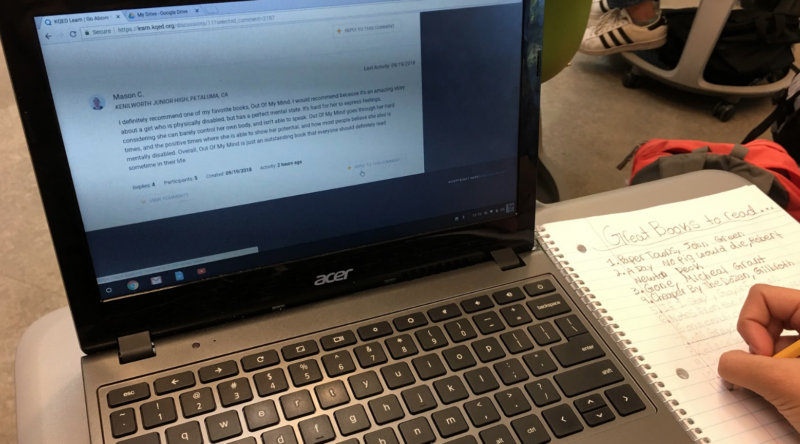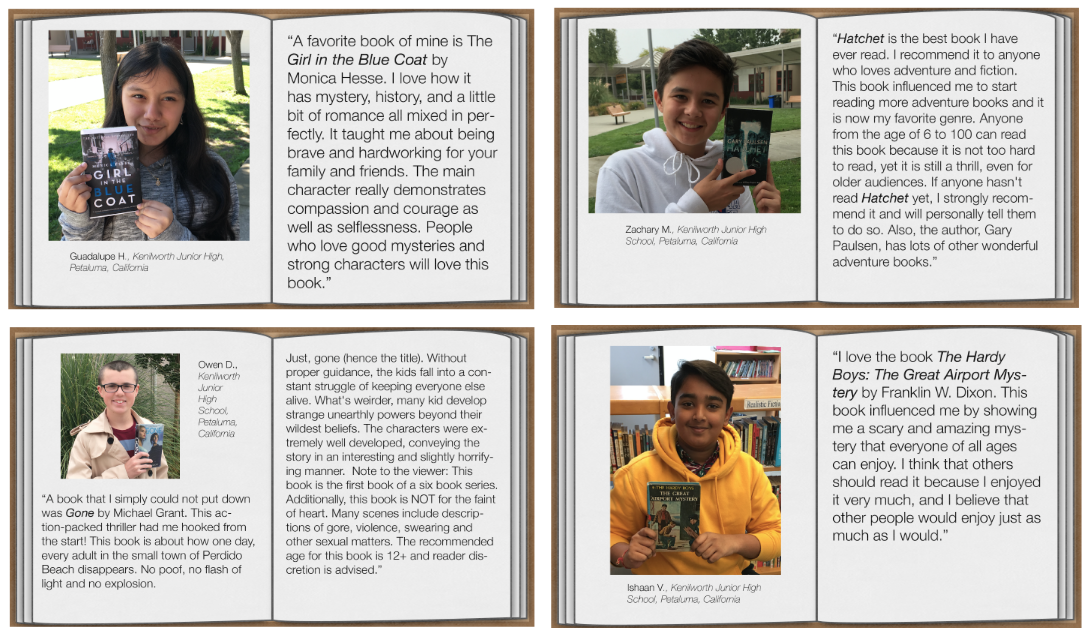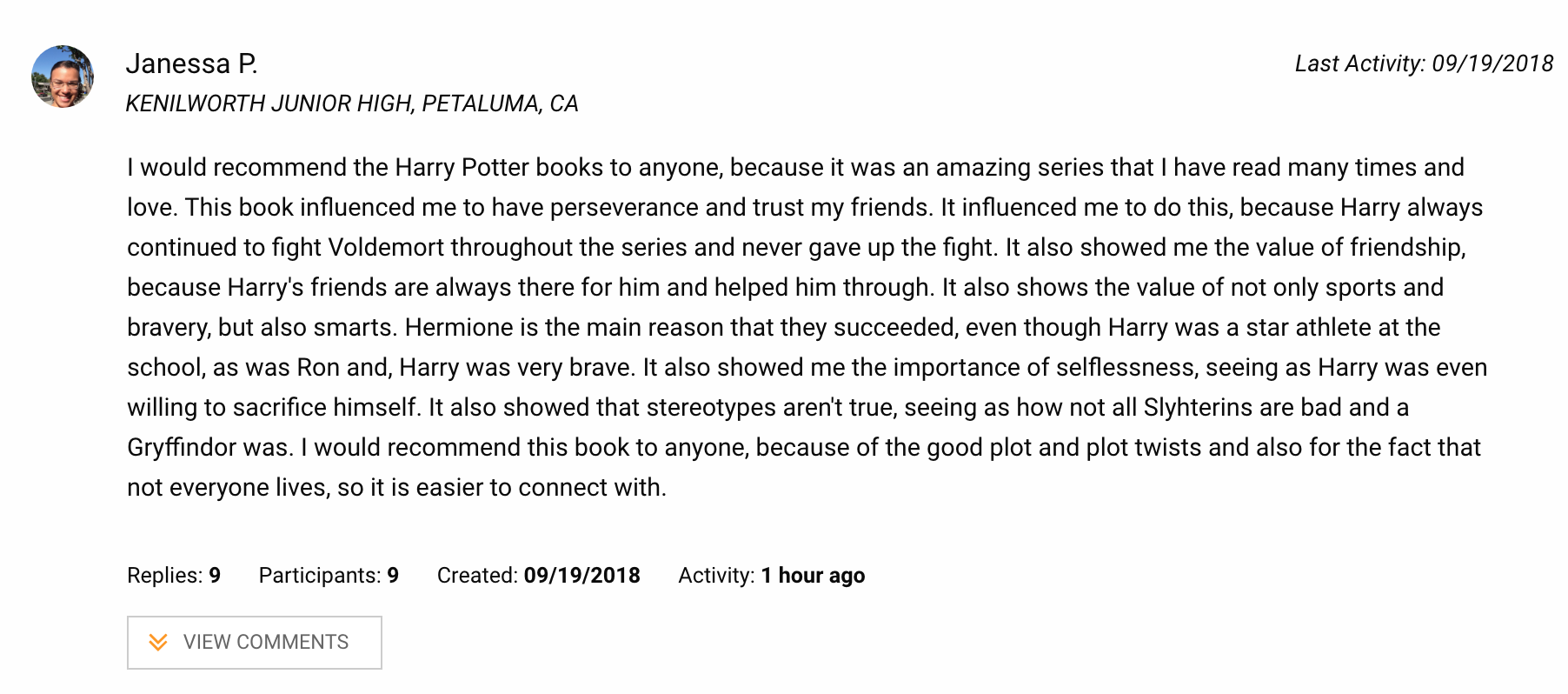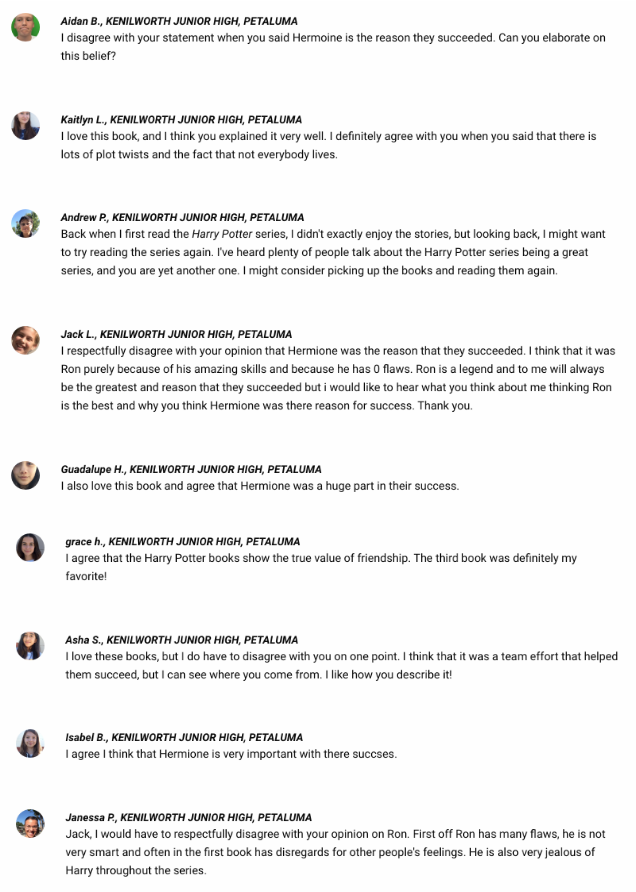In my ongoing efforts to build a culture of reading in my classroom, I often overlook the best way to inspire a student to pick up a book: recommendations from a peer. How can my book talks ever hope to compete with a teenager enthusiastically pushing a book into a classmate’s hands? And while it used to be a struggle to find efficient ways for my students to share book recommendations with each other, today’s classroom offers myriad options.
Top of my list is the KQED Learn platform from KQED. Just in time for PBS’s Great American Read series, KQED Learn has launched a discussion about our favorite books. Students are invited to watch an Above the Noise video about how technology might be affecting our reading habits, and then they are encouraged to post a recommendation of one of the best books they have read. Some of my students were proud to be included in the launch of the discussion:
Joining KQED Learn and creating a class is a quick and easy process, allowing students to get started on the site right away. After registering their accounts and adding a profile picture, my students wrote and posted recommendations of their favorite books. Then they started reading and replying to recommendations from other students, and adding to their growing list of “great books to read someday.”




